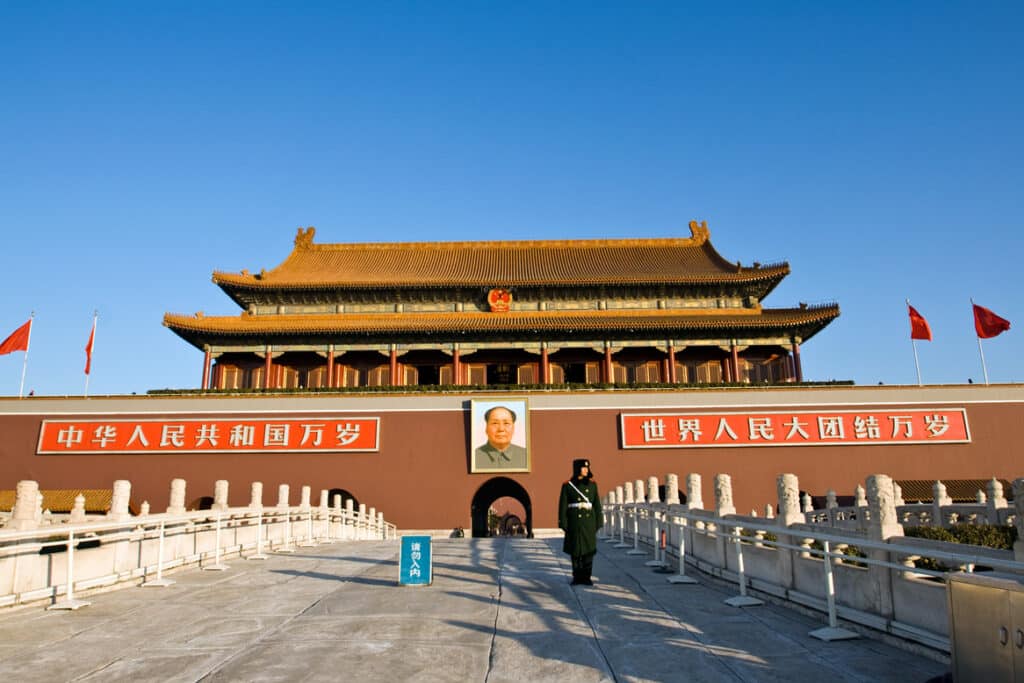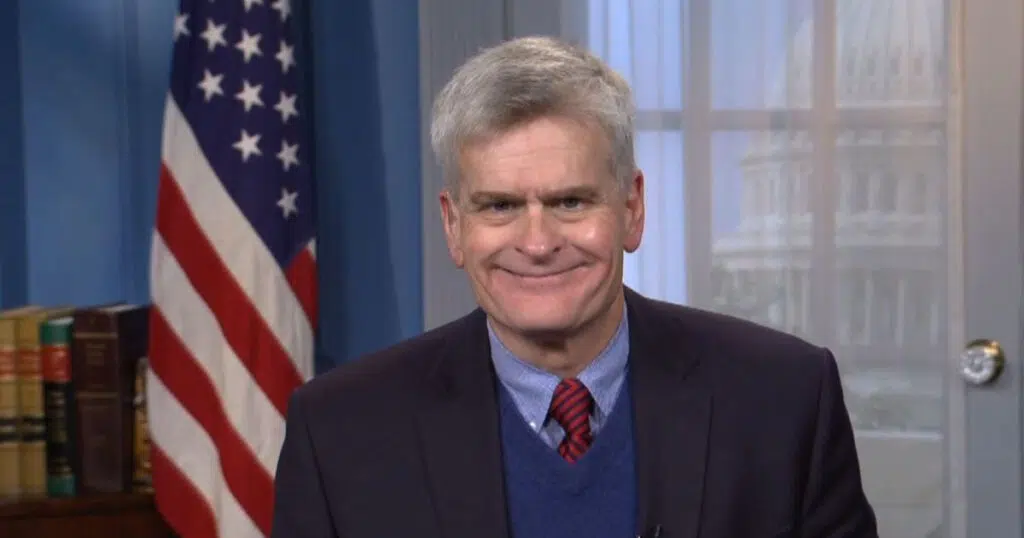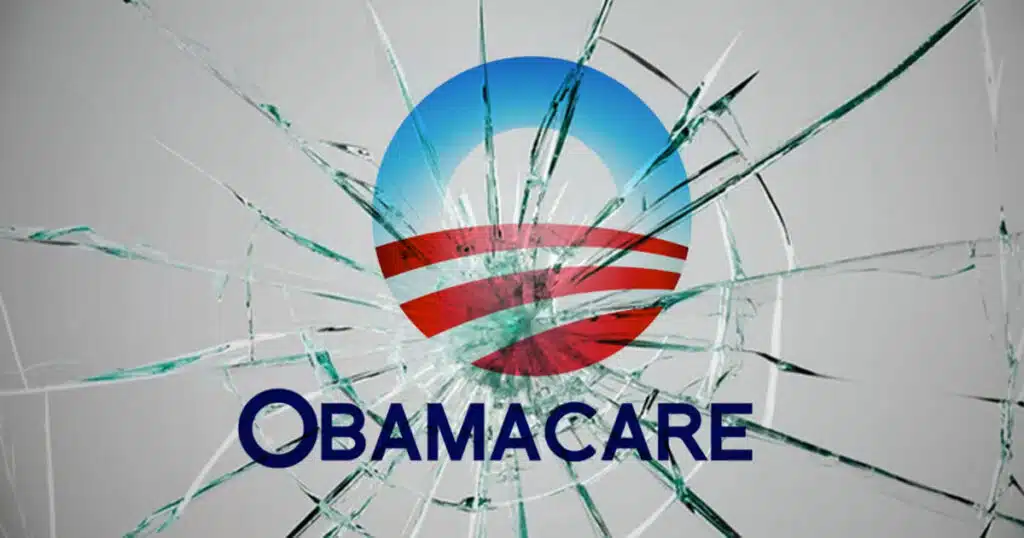
China Commission to MLB, U.S. Firms: Stop Subsidizing China’s Abuses
Baseball may seem as American as apple pie, but many of its most popular bats and gloves are made in China and owned by a company implicated in the Chinese Communist Party’s forced labor abuses.
Just hours before baseball fans were gathering in Seattle for the MLB’s All-Star Game Tuesday, across the country, members of Congress hit the league for continuing to allow Louisville Slugger and Wilson bats and gloves to be used in its games.
In 2018, China-based Anta Sports purchased Finland’s Amer Sports, which owns Louisville Slugger – once considered an all-American brand favored by Babe Ruth and Jackie Robinson – as well as Wilson brand sports. Louisville Slugger, founded by manufacturer Hillerich & Bradsby 138 years ago, operates a factory and museum in its namesake Kentucky hometown. But many of its bats have been made in China since 2008.
Anta Sports, which was the official Olympics uniform supplier for the Beijing winter games in 2022, has faced heavy international scrutiny for refusing to say whether the cotton from its products is from the northwest region of Xinjiang.
The area is home to the Uyghurs, a predominantly Muslim ethnic minority that has been brutally persecuted by the Chinese government. More than 1 million Uyghurs and other religious and ethnic minorities have been forced into mass internment camps and conscripted to work in factories and sweatshops.
“I do wonder if Major League Baseball understands how they’re being complicit with forced labor,” Isaac Stone Fish, a visiting fellow at the Atlantic Council, testified Tuesday before the Congressional-Executive Commission on China.
Louisville Slugger bats are used by about 13% of MLB starters. Rawlings, which remains an American company based in Missouri, is the most dominant brand with a 39% market share, with Wilson second at 29%.
The MLB itself has its own direct business deals with Chinese companies, which have grown increasingly common over the past decade in a global and competitive market where sports firms are looking for greater capital and scale. Chinese tech giant Tencent and the MLB in 2017 announced a wide-ranging partnership that includes live-streaming 125 games, including the All-Star Game and the World Series.
The NBA’s business ties to China also came under fire during Tuesday’s congressional hearing, which featured testimony from Enes Kanter Freedom, a former NBA player for the Boston Celtics and New York Knicks. Kanter Freedom was dropped from the NBA in early 2022 after speaking out about China’s human rights abuses and for wearing shoes emblazoned with the words “Free Tibet” and “Free the Uyghurs.”
Tencent, which partnered with the NBA to live-stream the games, abruptly pulled all Celtics’ games from the Chinese internet after Kanter Freedom, who played for the Boston team at the time, called Chinese President Xi Jinping a “brutal dictator.”
After being released, Kanter Freedom said no fellow NBA player reached out to him to offer him condolences and wish him luck in his post-NBA life.
“It was a very lonely path,” he recalled. “They were just scared that if they talked to me and if I ever mentioned their name in my podcast, they would lose all their endorsements.”
During Tuesday’s hearing, Rep. Zach Nunn, an Iowa Republican who serves as an information warfare officer in the Air Force, pressed Kanter Freedom on some details about his release from the NBA.
“Who specifically pressured you – was it someone in China or the United States?” Nunn asked.
Kanter Freedom responded that a representative from the National Basketball Players Association was the one who told him he could never wear shoes with anti-China slogans on them again, even though other players’ decisions to wear politically charged slogans supporting Black Lives Matter or other causes were allowed and even encouraged.
“It was literally someone from the NBPA, who was an American,” Kanter Freedom responded. “And I was like, how can the biggest dictatorship in the world – China – control an American [entity] and fire a U.S. citizen? And I just keep asking the question to myself, are we really free?”
While sports controversies involving China make more headlines, Rep. Chris Smith, a Republican from New Jersey who chairs the China Commission, expressed deep concern over the manufacturing and other business ties forged between many U.S. companies and China over the last three decades.
A longtime champion of human rights, Smith said he realized during a meeting in Beijing with the U.S. Chamber of Commerce in the late 1990s that “no human rights violation by the CCP would cause them to disrupt lucrative business deals” in China.
With China’s recent aggression against Taiwan and military build-up, other witnesses at the hearing testified about sales by U.S. defense giants, such as Boeing and Raytheon, to the Chinese government.
“In China, there are no private airlines,” Fish said during his testimony to the commission in the Rayburn House Office Building. “Every plane that Boeing sells in China, it sells to the Communist Party. So, we’re in a situation where we’re facilitating not only the growth of the Chinese economy and the Chinese military but also making it so American corporations have different interests and incentives than a lot of people in this building.”
Washington, in recent years, has tried to crack down on U.S. companies’ involvement or complicity in Chinese forced labor abuses. Overcoming resistance by several U.S. companies with supply chains in Xinjiang, including Apple Inc., Nike, and Coca-Cola, Congress passed the Uyghur Forced Labor Prevention Act, and President Biden signed it into law in late 2021. The UFLPA prohibits goods from being imported into the United States that are either produced in Xinjiang or by entities identified on an official blacklist unless they can prove by clear and convincing evidence that the goods were not produced with forced labor.
In the law’s first year, the Department of Homeland Security’s U.S. Customs and Border Protection, which oversees its administration, reviewed more than 4,000 shipments worth more than $1.3 billion and identified 22 Chinese companies that are no longer allowed to import goods into the United States.
Despite the new U.S. restrictions, key members of Congress and human rights groups have expressed concern that illicit Chinese materials and goods are still reaching the U.S. and are regularly sold on Amazon and other U.S. retail giants, including Home Depot.
The hearing highlighted a high-profile case involving forced labor used to make Milwaukee Tool products at Chishan Prison in China. Chinese human rights advocate Cheng Yuan and Taiwanese democracy activist Lee Ming-che were imprisoned in Chishan for several years, though Lee Ming-che was eventually released. Chen Yuan’s spouse, Shi Minglei, testified to the commission Tuesday that after his release, Lee told her that he and others incarcerated at Chishan were forced to make gloves bearing the Milwaukee Tool logo. Another released prisoner, whom Lee referred to by the pseudonym Xu Lun because he is still in China, also reported being forced to produce gloves with the Milwaukee Tool logo while imprisoned at Chishan.
“I am told my husband is currently forced to do a significant amount of sewing as well,” Shi told the committee. “Lee said that if prisoners refused to work or to meet quotas, they were subject to a variety of punishments, including being forced to stand for several hours straight, having their contact with family members cut off, being denied commissary rights, and, in some cases, being subjected to beatings, including with electric batons.”
After her husband’s detention, Shi was placed under house arrest in China, living under surveillance until she could escape to the United States. She hasn’t had any contact with her husband since his arrest in 2019.
Citing Lee’s testimony and other media reports, Smith and the commission’s co-chair, Sen. Jeff Merkley, an Oregon Democrat, sent a letter Thursday morning to the company’s CEO, requesting information about its actions to prevent its gloves and other products from being made by Chinese prisoners.
“We hope you can provide us with information about these reports and your company’s reaction to them,” Smith and Merkley wrote. “We understand that Milwaukee Tool may have strongly worded policies against the use of forced labor, as does most every company with global supply chains, but the evidence in this case is very compelling.”
The pair also noted that Milwaukee Tool globes continue to be sold at Home Depot and Amazon.
“American consumers should not be unwittingly subsidizing the PRC’s human rights abuses,” they wrote.
Milwaukee Tools did not return RealClearPolitics’ request for comment.
Robert Silvers, DHS undersecretary for policy, testified that the agency is “all in” and fully committed to enforcing the new UFLPA law.
“Our implementation of [the law] has been speedy, strong, and surgical,” he said, noting that CBP is using artificial intelligence and scientific testing to determine the true origin of goods.
“Early enforcement has been strong, but we face challenges, including the risks posed by de minimis shipments, and the need to further resources to fulfill our mandate,” Silvers said.
Smith and others have questioned whether the de minimis trade provision, a U.S. Customs rule allowing for shipments to be brought into the United States duty free if under $800 in value, has become a gaping loophole that companies are using to circumvent the UFPLA.
There are roughly two to three million de minimis shipments to the U.S. per day, Silver testified, making it a challenge for U.S. law enforcement to monitor a whole host of import controls, including those aimed at detecting narcotics, other contraband material, as well as items and products made with forced labor.
This article was originally published by RealClearPolitics and made available via RealClearWire.



